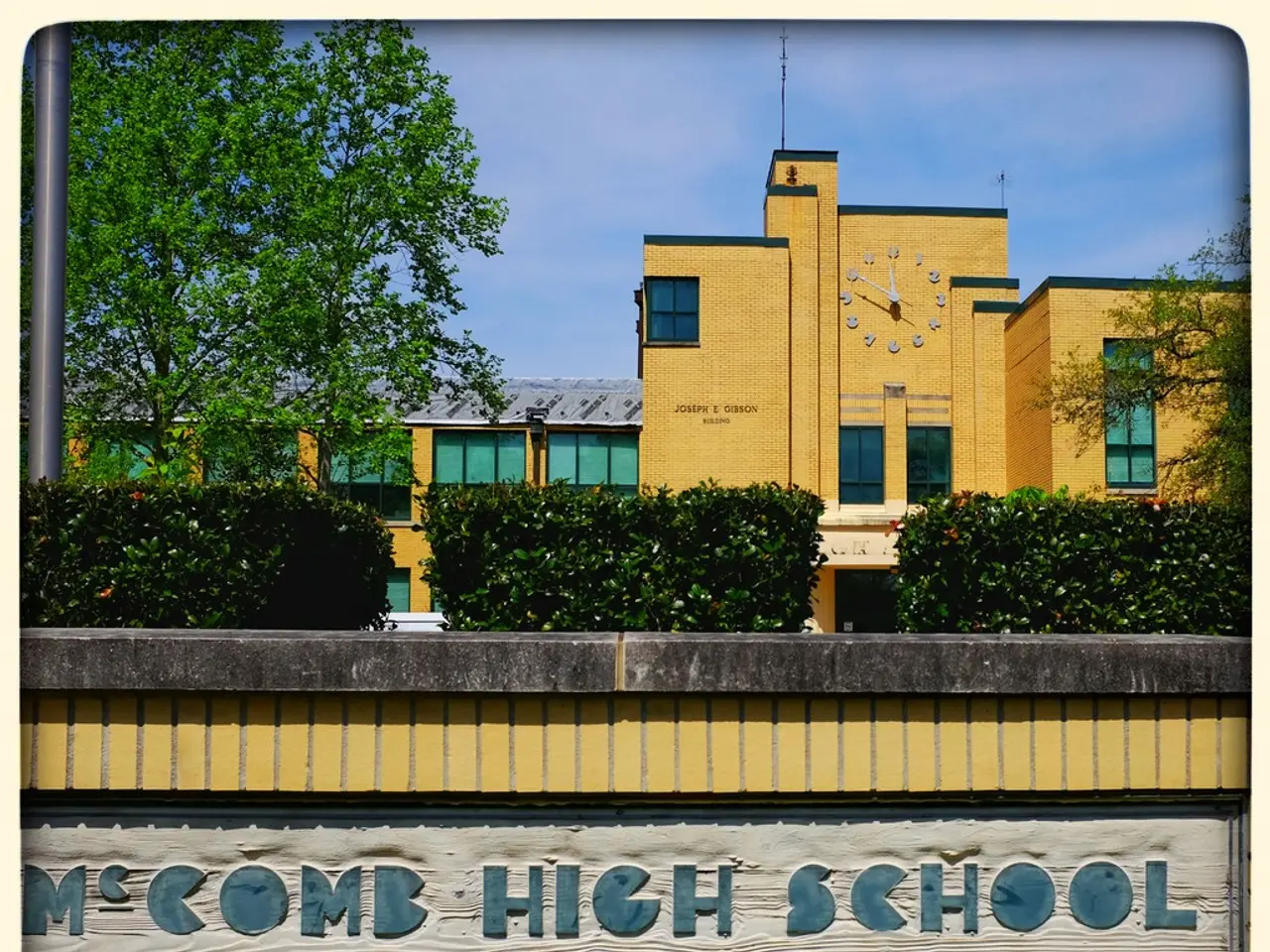Maine State Releases Initial Maine Climate Education Blueprint
In a significant step forward for environmental education in Maine, the Maine Department of Education, in collaboration with the Maine Environmental Education Association, has published the Maine Climate Literacy Plan (MCLP). This groundbreaking initiative, one of the first of its kind in the nation, is designed to chart a supportive plan for climate literacy throughout Maine schools.
The MCLP, a result of the 2020 Maine Won't Wait recommendation by the Maine Climate Council, serves as an addendum to the Maine Environmental Literacy Plan (MELP), first created in 2010 and revised in 2022. The MCLP was developed by a taskforce established by the Maine DOE in the Spring of 2024, consisting of 30 key partners from various roles and locations.
The program includes professional learning online, curriculum development, in-person events, field trips, and book studies featuring books by Indigenous authors. Teachers participating in this program are learning from university faculty about climate impacts in Maine, as well as gaining insight into Wabanaki culture from organizations like Wabanaki Youth in Science (WaYS) and Wabanaki REACH. Participants are also completing the University of Maine Dawnland micro-credential as part of this program.
RSU 34, in collaboration with the Maine Center for Research in STEM Education (RiSE Center) at the University of Maine, is working with over 85 teachers from around the state to develop lessons on climate science. This collaboration asks teachers to incorporate Indigenous philosophies and knowledge into their lesson plans, in addition to Western science findings.
MSAD 17 fifth-grade classes, for instance, recently learned about the ecology and cultural significance of ash trees during STEM lessons at Roberts Farm Experiential Learning. While the ash trees observed showed signs of stress, they did not exhibit clear evidence of the emerald ash borer. MSAD 17 plans to continue monitoring these trees with fifth-grade classes in the future.
The MCLP provides seven recommendations for parties throughout the state to help support climate literacy in Maine schools and among Maine youth. The program builds on the long-term vision and success of prioritizing environmental education throughout the state, while setting more specific and shorter-term goals for climate education as a subset of environmental education.
For the 2024-2025 school year, 10 climate education programs are underway in dozens of schools throughout the state, with the MCLP aiming to support such programs in the future. Broader strategic planning at organisations such as the Gulf of Maine Research Institute, which includes objectives like building climate-ready communities and supporting energy solutions—a framework aligned with climate literacy goals—also contribute to Maine's climate education initiatives.
Legislation like LD 1868, which accelerates Maine’s transition to 100% clean energy by 2040 with goals for 90% renewable and 10% low/zero carbon energy sources, including expanding eligibility for energy credits and improving regional cooperation to lower energy costs, further underscores Maine's commitment to climate education and awareness.
The MCLP is structured into two strategic goals: Increase Capacity Building for Advancing Climate Literacy in Maine Schools and Develop a Holistic Maine Green Schools Program. The MCLP serves as a four-year framework that will be revised and updated, as needed, and then fully updated with a taskforce after four years.
Maine's climate literacy initiative was recommended in the "Maine Won't Wait" 2020 plan and is described as the first of its kind in the country, highlighting Maine's pioneering approach to climate education and awareness. For more specific recommendations and actionable steps from the MCLP itself, it would be advisable to consult Maine’s official environmental or educational agency sources directly.
- The Maine Climate Literacy Plan (MCLP), an extension of the Maine Environmental Literacy Plan, aims to enhance climate education in Maine schools by incorporating elements such as environmental-science, climate-change, and education-and-self-development.
- Teachers across Maine are benefiting from the MCLP, engaging in science-based learning about climate impacts in Maine, as well as exploring Wabanaki culture through partnerships with organizations like Wabanaki Youth in Science and Wabanaki REACH.
- The MCLP, structured into two strategic goals, is not only strengthening climate education in Maine schools but also aligning with broader initiatives such as building climate-ready communities and supporting energy solutions, as seen in legislations like LD 1868.




